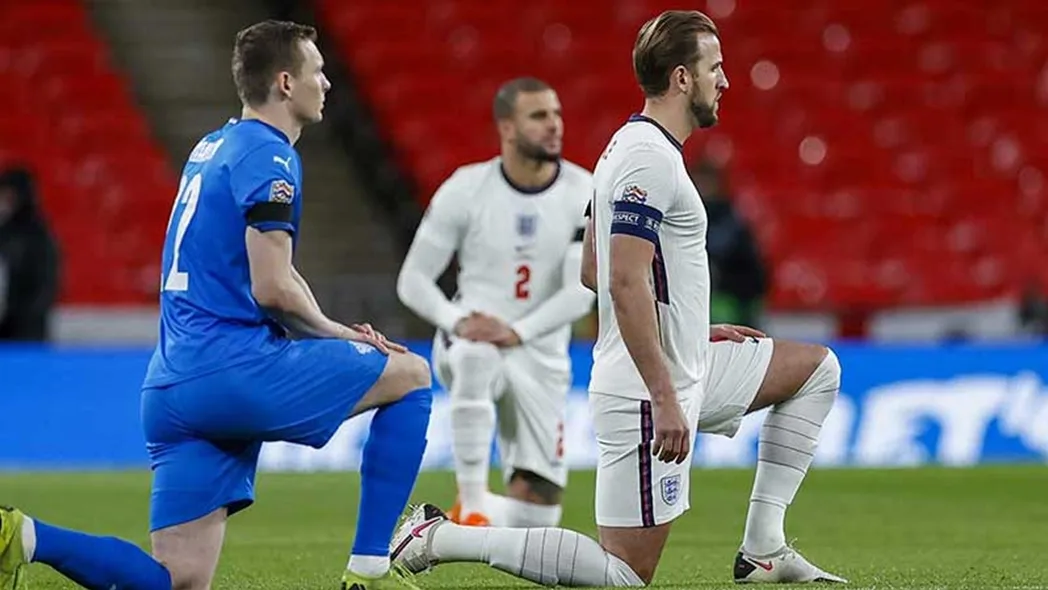Soccer, also known as football, is the most popular sport in the world. It is estimated that over half of the world’s population consider themselves soccer fans. Soccer is not just a sport; it is a unifying force that brings people together regardless of their race, religion, or ethnicity. It has the power to unite nations, resolve conflicts, and promote peace.
Soccer has a significant impact on society, and it is not just limited to sports. It has a considerable economic impact, especially in countries where soccer is the dominant sport. For example, the English Premier League generates billions of dollars in revenue each year, and it has a significant impact on the UK’s economy. Soccer also has a positive impact on health, as it encourages people to stay active and promotes physical fitness.
Key Takeaways
- Soccer has the power to unite people from different backgrounds and resolve conflicts.
- Soccer has a significant economic impact, especially in countries where it is the dominant sport.
- Soccer promotes physical fitness and encourages people to stay active.
Soccer as a Unifying Force

Soccer, also known as football in many parts of the world, has the power to bring people together and unite them towards a common goal. It is a sport that transcends cultural, social, and economic barriers, making it a powerful tool for promoting social integration and reducing racial and ethnic barriers.
Promoting Social Integration
Soccer is a sport that is enjoyed by people of all ages, genders, and backgrounds. It provides a platform for individuals from different walks of life to come together and share a common passion. Soccer clubs and teams often act as a hub for social integration, bringing together people who might not have otherwise interacted with each other.
For example, in the United States, soccer has become increasingly popular among immigrant communities. Many of these communities have formed their own soccer teams and leagues, providing a space for individuals to connect with others who share a similar cultural background. As a result, soccer has helped to promote social integration and foster a sense of community among immigrant populations.
Reducing Racial and Ethnic Barriers
Soccer has also been used as a tool to reduce racial and ethnic barriers. In many countries, soccer teams and leagues have been formed specifically to promote racial and ethnic harmony. These teams often consist of players from different racial and ethnic backgrounds, and they work together to promote understanding and acceptance.
For example, in South Africa, soccer played a crucial role in the fight against apartheid. The national soccer team, the Bafana Bafana, became a symbol of the struggle for freedom and equality. The team consisted of players from different racial backgrounds, and their success on the field helped to promote racial harmony and unity.
In conclusion, soccer has the power to bring people together and unite them towards a common goal. It provides a platform for social integration and can help to reduce racial and ethnic barriers. Soccer is more than just a sport; it is a tool for promoting social change and resolving issues.
Economic Impact of Soccer

Soccer is not only a popular sport but also a significant contributor to the global economy. The sport generates billions of dollars in revenue and creates numerous job opportunities worldwide. In this section, we will discuss the economic impact of soccer.
Boosting Local Economies with Events
Soccer events such as the World Cup and the Olympics have a significant economic impact on the host country. These events attract a massive influx of tourists, which leads to increased spending on accommodation, transportation, food, and entertainment. For example, the 2014 World Cup in Brazil generated an estimated $13.5 billion in revenue and created around 3.7 million jobs [1]. Additionally, the construction of new stadiums and infrastructure for these events can also create jobs and stimulate economic growth.
Job Creation and Merchandising
Soccer also creates numerous job opportunities in various sectors, including media, hospitality, and retail. The sport’s global popularity has led to the creation of various merchandise, such as jerseys, caps, and other accessories, which generate significant revenue for clubs and organizations. For example, in 2020, the English Premier League’s merchandise sales were estimated at around $1.5 billion [4]. Moreover, the sport’s popularity has led to the creation of numerous jobs in these sectors.
In conclusion, soccer has a significant economic impact on the global economy. The sport generates billions of dollars in revenue and creates numerous job opportunities worldwide. Soccer events such as the World Cup and the Olympics have a significant economic impact on the host country, while the creation of merchandise generates significant revenue for clubs and organizations.
Soccer and Health

Soccer is not only a fun and exciting sport, but it also has numerous health benefits. In this section, we will explore how soccer can encourage physical activity and improve mental health.
Encouraging Physical Activity
Soccer is a high-intensity sport that requires players to run, jump, and change direction frequently. It is an excellent way to get a full-body workout and improve cardiovascular health. According to a study published in the Journal of Sports Sciences, soccer players cover an average distance of 10-13 km during a match, which is equivalent to running a half marathon.
Moreover, soccer is a team sport, which means that players need to work together and communicate effectively to achieve a common goal. This not only improves their physical health but also their social skills.
Mental Health Benefits
Soccer can also have positive effects on mental health. According to a study published in the British Journal of Sports Medicine, playing soccer can reduce symptoms of depression and anxiety. It can also improve self-esteem and cognitive function.
Furthermore, soccer is a great way to relieve stress and improve mood. When playing soccer, the body produces endorphins, which are natural chemicals that make you feel good. This can help reduce stress and anxiety and improve overall mental well-being.
In conclusion, soccer is not just a sport, but it also has numerous health benefits. It encourages physical activity, improves cardiovascular health, social skills, and mental well-being.
Soccer in Politics and Diplomacy

Soccer has become increasingly important in politics and diplomacy. It has been used as a tool for soft power, political expression, and diplomacy. In fact, soccer diplomacy has been a political tool in nearly every arena, from resolving conflicts to promoting human rights.
Soccer Diplomacy Examples
One example of soccer diplomacy is the 2018 World Cup in Russia. Despite political tensions between Russia and the West, the World Cup brought people from all over the world together to celebrate soccer. The tournament was a chance for Russia to showcase its culture and hospitality, and it helped to improve Russia’s image on the world stage.
Another example of soccer diplomacy is the 2022 World Cup in Qatar. Qatar has been using the tournament to promote its Vision 2030 plan, which aims to transform the country into a knowledge-based economy. The tournament has also been used to promote human rights in the region, with the Qatari government making significant investments in infrastructure and social programs.
Political Influence through Soccer
Soccer has also been used to influence politics in various ways. For example, in 2019, the Algerian national team helped to spark a popular uprising against the country’s government. The team’s success in the African Cup of Nations helped to unite the country and give people hope for a better future.
Similarly, soccer has been used to promote political causes around the world. In Palestine, for example, soccer has been used to highlight the country’s struggle for independence. The Palestinian national team has been recognized by FIFA, which has helped to raise awareness of the Palestinian cause on the world stage.
Overall, soccer has become an important tool for diplomacy and political influence. It has the power to bring people together and promote positive change in society.
Soccer’s Role in Education

Soccer plays a significant role in education, teaching teamwork, discipline, and leadership skills. It is a sport that requires players to work together to achieve a common goal. As a result, it helps to instill a sense of teamwork in players, which is an essential skill that can be applied in various aspects of life.
Teaching Teamwork and Discipline
Soccer teaches players the importance of discipline. It requires players to follow a set of rules and regulations, which helps to instill a sense of discipline in them. Players must also learn to work together as a team, which requires them to communicate effectively and understand each other’s strengths and weaknesses. By working together, players can achieve their goals and develop a sense of camaraderie.
Educational Programs and Scholarships
Soccer can also be used as a tool to promote education. Many organizations offer soccer programs to underprivileged children, providing them with an opportunity to learn and develop their skills. These programs often provide scholarships to talented players, giving them the chance to pursue their education and soccer careers simultaneously.
For example, the U.S. Soccer Foundation provides grants to organizations that use soccer as a tool for social change. The foundation aims to create opportunities for children in underserved communities to play soccer, learn valuable life skills, and pursue their education.
In conclusion, soccer plays a vital role in education, teaching players the importance of teamwork, discipline, and leadership skills. Through educational programs and scholarships, soccer can be used as a tool to promote education and provide opportunities for underprivileged children to pursue their dreams.
Soccer and Cultural Identity

Soccer plays a significant role in shaping cultural identity, both at the national and community levels. It has the power to bring people together, creating a sense of belonging and pride. This section will explore how soccer influences cultural identity, with a focus on national pride and identity, as well as club loyalty and community.
National Pride and Identity
Soccer has been used as a tool to promote national pride and identity. Countries often use soccer as a way to showcase their culture and values to the world. For instance, during the 2010 FIFA World Cup held in South Africa, the country used the tournament to showcase its diversity and cultural heritage to the world. The tournament brought together people from different racial and ethnic backgrounds, creating a sense of unity and pride.
In addition, soccer has been used to promote social cohesion and national reconciliation. For example, in post-apartheid South Africa, soccer played a significant role in bringing together people from different racial and ethnic backgrounds. The country’s national team, Bafana Bafana, became a symbol of national unity and pride. The team’s success on the international stage helped to promote a sense of national identity and pride.
Club Loyalty and Community
Soccer also plays a significant role in shaping community identity and loyalty. Fans often identify with their local soccer clubs, creating a sense of belonging and community. For example, in the English Premier League, fans identify with their local clubs, such as Liverpool, Manchester United, and Arsenal. These clubs have a rich history and tradition, which fans often identify with and take pride in.
Moreover, soccer clubs often play an important role in their local communities. For instance, many clubs have community outreach programs, which aim to promote social cohesion and community development. These programs often focus on youth development, education, and health promotion. By engaging with their local communities, soccer clubs can help to promote a sense of belonging and community pride.
In conclusion, soccer plays a significant role in shaping cultural identity, both at the national and community levels. It has the power to bring people together, creating a sense of belonging and pride. National pride and identity, as well as club loyalty and community, are just some of the ways in which soccer influences cultural identity.
Soccer’s Influence on Media and Technology
Soccer is a sport that has a massive influence on media and technology. It has not only changed the way people consume sports but also how they interact with it. This section explores the various ways soccer has influenced the media and technology sectors.
Media Coverage and Broadcasting Rights
Media coverage and broadcasting rights are essential for any sport to reach a wider audience. Soccer has been at the forefront of media coverage, with billions of people watching the World Cup every four years. Soccer clubs and leagues have also been able to secure lucrative broadcasting rights deals, which have helped them to grow and invest in their clubs.
For example, the English Premier League (EPL) has secured broadcasting rights deals worth billions of dollars, which have helped the league to become one of the most popular sports leagues in the world. The EPL’s broadcasting rights deals have also helped the league to attract some of the world’s best players, making it one of the most competitive leagues in the world.
Advancements in Sports Technology
Advancements in sports technology have also been influenced by soccer. The use of technology in soccer has helped to improve the accuracy of decision-making, making the sport fairer and more transparent. For example, the introduction of goal-line technology has helped to eliminate controversial goal-line decisions, which have been a problem in the past.
Soccer has also been at the forefront of using technology to improve player performance. Wearable technology, such as GPS trackers, has helped coaches and players to monitor player performance, allowing them to make informed decisions about training and player selection.
In conclusion, soccer has had a massive influence on media and technology. Its ability to attract a global audience has made it one of the most valuable sports in the world. The sport’s influence on media coverage and broadcasting rights has helped it to grow and attract some of the world’s best players. Advancements in sports technology have also helped to improve the accuracy of decision-making and player performance.
Soccer as a Platform for Charitable Causes

Soccer is not only a game but also a powerful tool for social change and philanthropy. Professional clubs and players use their platform to raise awareness and support various charitable causes. Soccer has the power to bring people together for a common cause and make a positive impact on society.
Fundraising and Awareness Campaigns
Soccer clubs and players participate in fundraising and awareness campaigns to support various charitable causes. For example, the English Premier League has a long-standing partnership with the charity organization, Comic Relief. Every year, the league hosts a “Red Nose Day” event to raise money and awareness for the charity. Players also donate a portion of their salaries to charitable organizations. In 2020, Liverpool Football Club donated £40,000 to Fans Supporting Foodbanks, a charity that supports local food banks.
Player Involvement in Philanthropy
Soccer players are often involved in philanthropic activities and use their platform to support charitable causes. For example, Lionel Messi, a soccer superstar, founded the Leo Messi Foundation, which aims to improve the lives of children and adolescents who are at risk. The foundation provides access to health care, education, and sports for children in need. Another example is Didier Drogba, who founded the Didier Drogba Foundation to provide education and healthcare to children in his home country, the Ivory Coast.
In conclusion, soccer has the power to bring people together for a common cause and make a positive impact on society. Professional clubs and players use their platform to raise awareness and support various charitable causes. Soccer players are often involved in philanthropic activities and use their platform to support charitable causes.
Challenges and Criticisms

Despite the many positive impacts of soccer on society, the sport is not without its challenges and criticisms. Some of the most pressing issues include corruption and governance problems, as well as hooliganism and violence.
Corruption and Governance Issues
One of the most significant challenges facing soccer is the issue of corruption and governance. In many countries, soccer is big business, with billions of dollars at stake. Unfortunately, this has led to a situation where some officials and administrators have engaged in corrupt practices, such as accepting bribes or rigging matches.
For example, in 2015, several high-ranking officials of FIFA, the international governing body of soccer, were arrested on charges of corruption. The scandal rocked the soccer world and raised serious questions about the integrity of the sport.
Addressing Hooliganism and Violence
Another major challenge facing soccer is the issue of hooliganism and violence. While most soccer fans are passionate but peaceful, a small minority engage in violent behavior, such as fighting with opposing fans or damaging property.
In recent years, there have been several high-profile incidents of violence at soccer matches, including the 2016 Euro Cup in France, where there were clashes between Russian and English fans.
To address this issue, many soccer clubs and organizations have implemented measures such as increased security, stricter penalties for violent behavior, and better education for fans on appropriate behavior. However, more needs to be done to ensure that soccer matches remain safe and enjoyable for everyone involved.
Frequently Asked Questions
What role does soccer play in fostering international relations and unity?
Soccer is a sport that transcends national boundaries and brings people from different cultures and backgrounds together. It serves as a common language that people from all over the world can understand and appreciate. The World Cup, for instance, is a major international event that brings together people from different countries and cultures to celebrate the sport. It promotes unity and helps to break down cultural barriers.
In what ways has soccer contributed to economic development in various countries?
Soccer is a multi-billion dollar industry that provides employment opportunities to millions of people worldwide. It contributes to economic growth by creating jobs in various sectors such as broadcasting, advertising, and tourism. For example, the 2014 World Cup in Brazil generated an estimated 3.6 million jobs and contributed $13.5 billion to the country’s economy. Additionally, soccer clubs and academies provide training and development opportunities for young people, which can lead to careers in the sport and related industries.
How does soccer serve as a tool for social change and community development?
Soccer has the potential to bring about positive social change by promoting inclusivity, equality, and social responsibility. It can be used as a tool to address social issues such as poverty, gender inequality, and social exclusion. For example, the U.S. Soccer Foundation uses soccer as a means to promote youth development and social change in underserved communities. Soccer can also be used to promote health and wellness, as it encourages physical activity and a healthy lifestyle.
Can you provide examples of how soccer has been used to bridge cultural and political divides?
Soccer has been used as a means to bridge cultural and political divides in various parts of the world. For example, during the Cold War, soccer matches between the United States and the Soviet Union were used to promote goodwill and diplomacy between the two countries. In 2008, a soccer match between Iran and the United States was used to promote cultural understanding and dialogue between the two nations. Additionally, soccer has been used to promote peace and reconciliation in conflict zones such as Rwanda, where the sport has been used to bring together communities that were divided by the 1994 genocide.
How has the popularity of soccer influenced youth development and participation in sports?
Soccer is one of the most popular sports in the world, and its popularity has had a significant impact on youth development and participation in sports. It provides young people with an opportunity to develop physical fitness, teamwork skills, and social connections. Additionally, soccer can be played with minimal equipment and in a variety of settings, making it accessible to young people from all backgrounds.
What are some instances where soccer has been instrumental in resolving conflicts or social issues?
Soccer has been used to resolve conflicts and social issues in various parts of the world. For example, in Colombia, soccer has been used to promote peace and reconciliation in communities affected by violence and conflict. In Northern Ireland, soccer has been used to bring together communities that were divided by sectarianism. Additionally, soccer has been used to promote social inclusion and reduce discrimination against marginalized groups such as refugees and immigrants.
Other Articles:
Check Out: The Offside Rule Concept in Football: A Clear Explanation
Check Out: The Modernization of the Global Football Industry: A Comprehensive Overview
Also See: The Usage of VAR Technologies in Football: A Comprehensive Overview
Also See: The Problem of Racism in Brazilian Football: A Clear Overview



